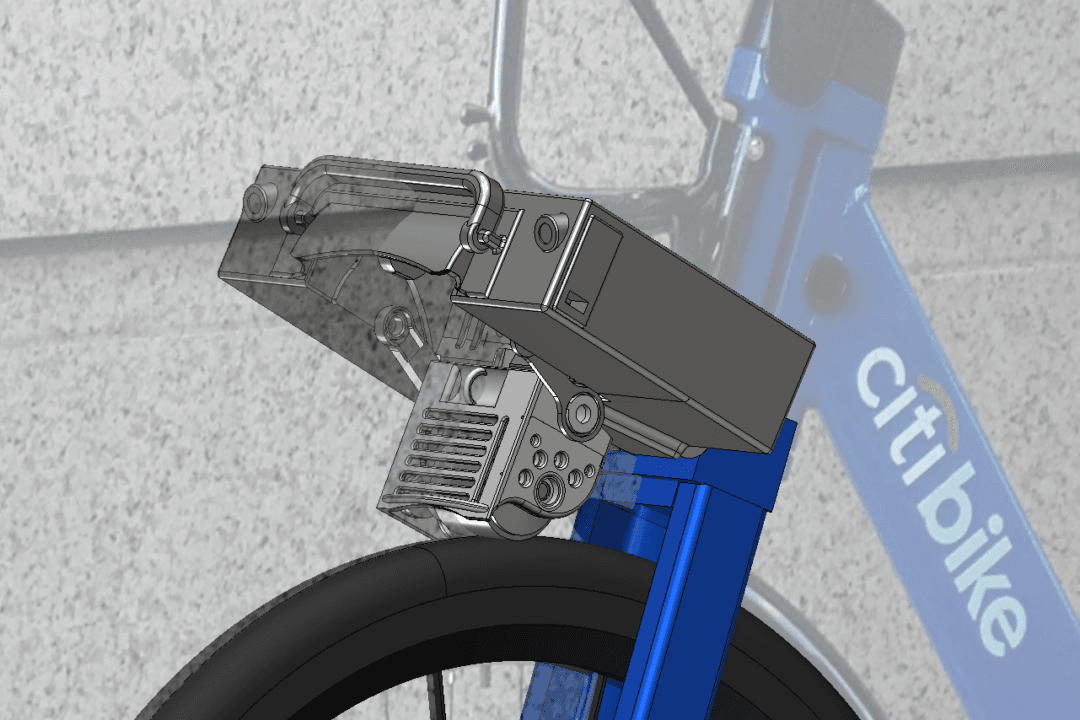NEW YORK—When New York City’s bike share program rolled out, many were thrilled with the prospect—but then realized they couldn’t show up to work drenched in sweat.
“I was dismayed at how heavy and difficult it was to ride compared with my other bicycles,” said Jeff Guida, inventor of ShareRoller.
The CitiBike share bike, at 45 pounds, and with just three speeds, was much too heavy for rides on hot days, or up hills, Guida said. A number of people Guida talked to shared the sentiment.
“After all, we don’t expect people to run in place while taking the subway, or to perform taxi-calisthenics while riding in the back of a cab, so why should one be required to get in a workout if they choose to commute by bicycle?” Guida asked.
So he created the ShareRoller, a device to speed up the CitiBike, and he said the response has been inspiring.
Jeff Guida (Courtesy of ShareRoller)
“Many new backers of my Kickstarter campaign have told me they plan to use ShareRoller to commute to work via CitiBike, something they could never have done before,” Guida said. “They’re absolutely thrilled to now have that freedom.”
ShareRoller is the world’s first portable and detachable system that lets cyclists convert bikeshare bikes, or scooters, into electric bikes.
The ShareRoller, designed to look like a conventional laptop bag or briefcase, can be installed or removed on a bike in less than 10 seconds, Guida said.

(Courtesy of ShareRoller)
It weighs just over 6 pounds, which is about the same as a 500-sheet pack of paper. With this, cyclists can cover 19 miles over three bridges through Manhattan, Queens, and Brooklyn, all in just over an hour.
Guida took a test run to share on his KickStarter campaign page, and showed that with a bit of light pedaling and using the device full throttle, the bike averages 15 mph through the 19-mile trip, with a bit of range left over.
ShareRoller provides 750 watts, letting cyclists go up to 18 mph without pedaling for 12 to 20 miles depending on the battery size. At 1.0 horsepower, that’s as much power as a Tour de France cyclist in a sprint, the page explains.
It’s the result of thousands of hours of design, over $1,000 in fees for keeping a CitiBike too long while testing, and eight months of riding and refining the product.
ShareRoller is not exclusive to the CitiBike model either. ShareRoller works on all major bike share models in the United States, Canada, and the United Kingdom, though local laws regarding motorized bicycles vary.

(Courtesy of ShareRoller)
In New York there is no state law regarding electric share bikes. However, the city recently passed legislation outlawing motorized scooters—defined as wheeled devices with handlebars that can be propelled without human power. The ShareRoller requires the bike or scooter to be pedaled to 1-2 mph before the device can kick in, and therefore is exempt, according to Guida.
“I realized that bicycle commuting had the potential to truly transform NYC’s streets, removing cars and taxis and replacing them with environmentally friendly bicycles that will make for a safer and more pleasant city to live in,” Guida said. “But the magical key to make that happen was electric assist for CitiBikes!”
Higher ridership would be welcomed in the city, according to what city officials are saying.
During a preliminary budget hearing with the Department of Transportation, many council members pushed for new CitiBikes in their districts, asking Commissioner Polly Trottenberg whether they could make it happen with discretionary funding from their own member items.
As much as they’d like to, CitiBike isn’t making enough for that to be viable yet, Trottenberg said.





